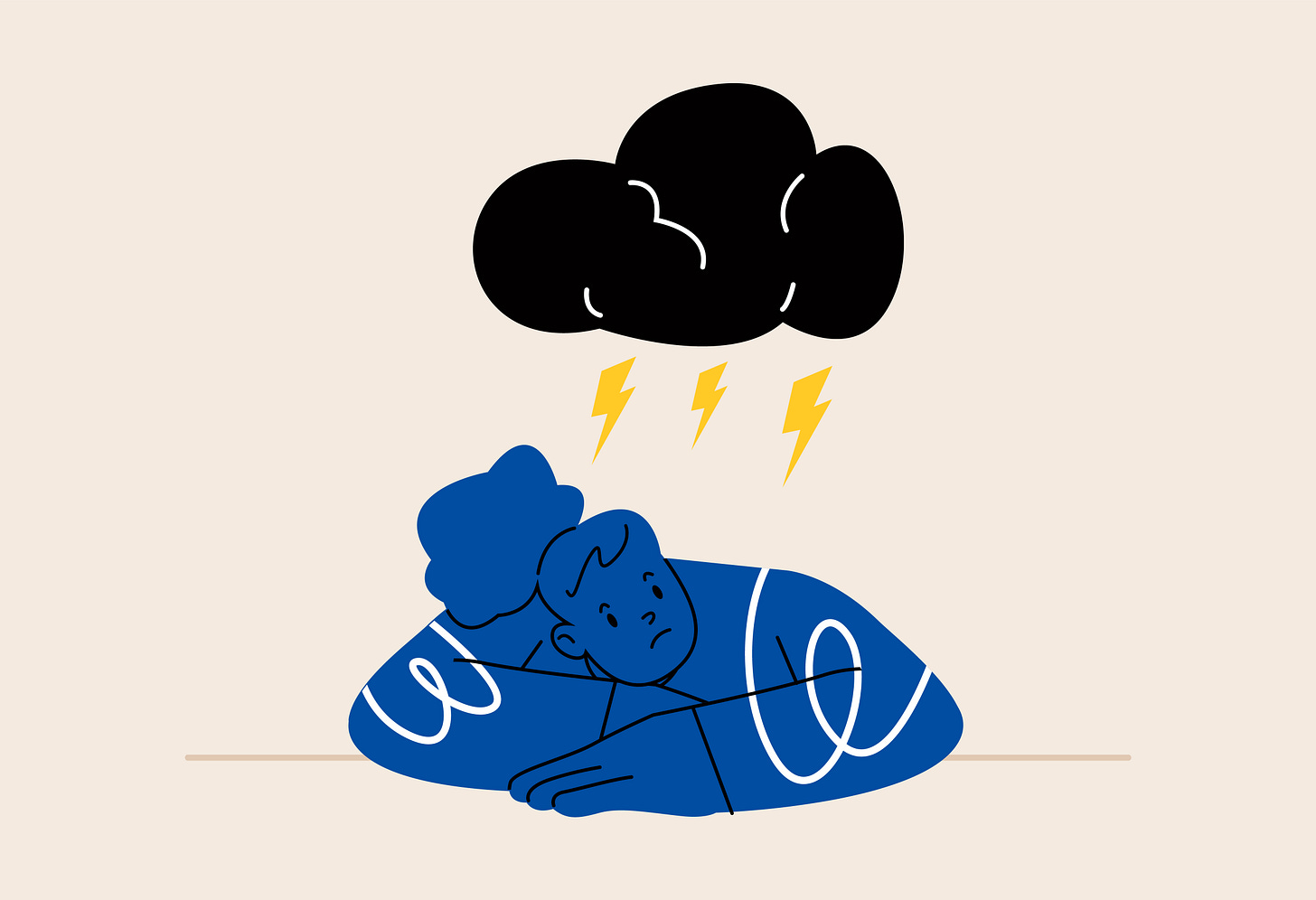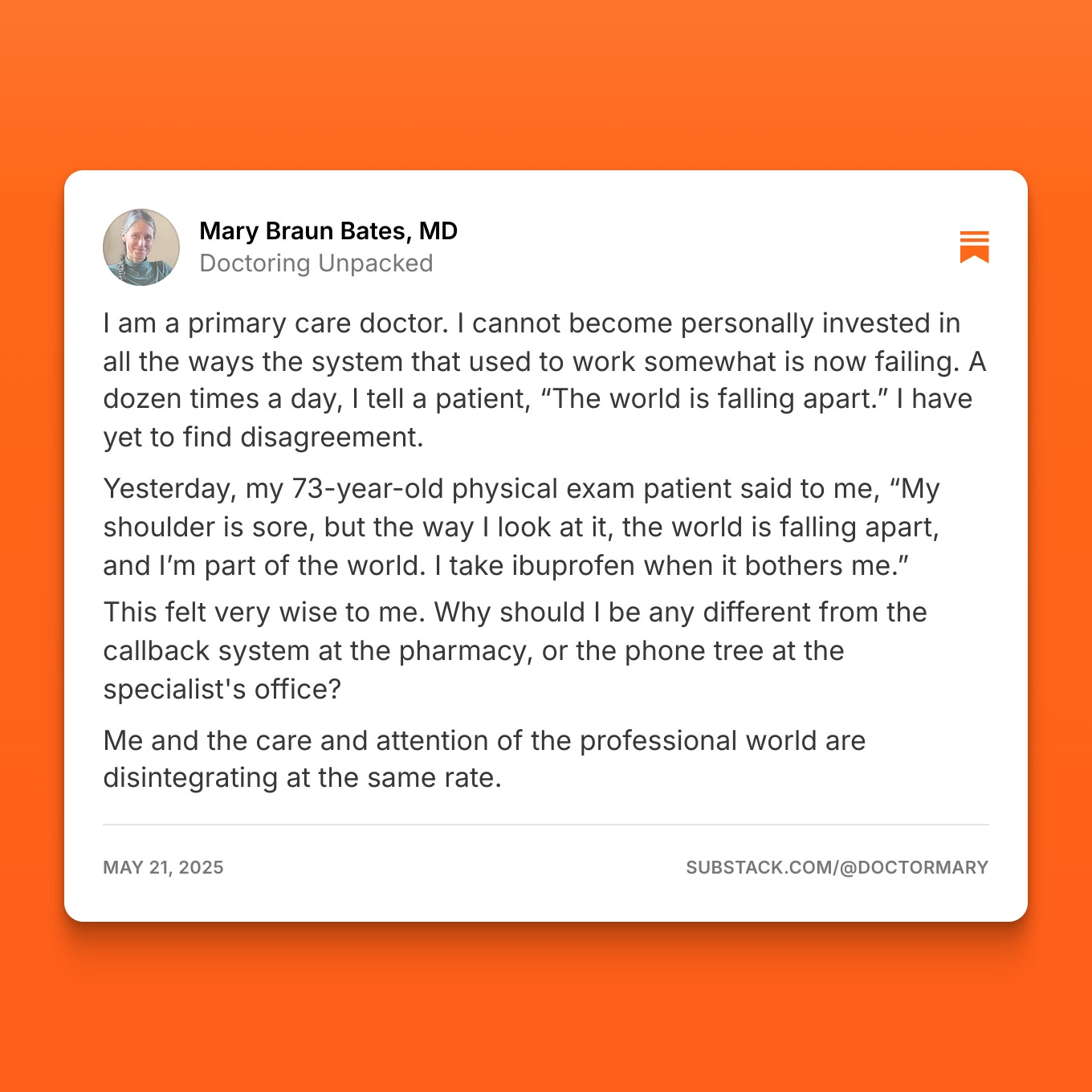Are You Advocating? Or Just Angry?
An insider's take on navigating the modern healthcare system
advocacy ˈad-və-kə-sē (noun):
the act or process of supporting a cause or proposal
Since Ford made the first announcement, I’ve been obsessed with the all-electric Ford F-150 Lightning. I’ve never been a person who cares about cars, but this truck drew me in - from the female engineer who designed it to the badass towing video. I loved the story which combined American ingenuity, the rehabilitation of Ford’s Rouge plant and the opportunity to support American manufacturing.
I joined the waitlist, planning to purchase one as soon as they became available. While waiting, I watched hundreds of YouTube videos and read every review. Finally, at the end of last year, I found the model, color and financing that worked for me. I picked up my new 2025 Lightning at a local Ford dealership a few days before Christmas. 😍
Last month, I took Patrick (yes, I name my vehicles) in for maintenance. I’d had a great experience with the salesman, so I decided to return to the dealership for service despite its distance from my house. According to my FordPass app, the truck was ready for a routine check-up; a manufacturer’s recall needed to be addressed; and I had also noticed a few minor problems since picking it up. Appointment scheduling was a breeze, and I dropped it off one evening after work.
Two weeks later, I returned to pick up my vehicle. My assigned service representative was busy, but a lovely young woman checked me out and I was out the door in under twenty minutes. On my way home, I realized that two out of the four issues I had brought the truck in for had not been addressed.
Confused, I called the service department that I had just left, and things devolved from there. Over the course of the next few days, our communications turned into a rope-a-dope situation where I was the dope. The dealership alternatively suggested that the problems were my “fault” and therefore not covered by the warranty or that they *had* been addressed and I was just mistaken.
As I ended a particularly frustrating call with the service manager, I started complaining to Todd. When my ranting stopped, my lovely husband took my hands and said, “You’re wasting your time, Dr. Wentworth. You’re not going to make them understand your point. They don’t care.”
I was incredulous. I stammered that they hadn’t done the work I requested, then promised that they would make it right and then didn’t. I had given clear instructions, multiple chances to correct mistakes, and assumed best intentions. There were signs EVERYWHERE in the service department that their goal was to provide “5-STAR Service.” It wasn’t right, I whined.
“Of course, it’s not right,” Todd answered sagely, “But they don’t care. No matter how angry you get, they’re not going to do what you want them to do. They’ve given you their best. They’re not going to do more. You need to let it go. This is why people hate car dealerships.”
I fumed as I walked back into the house but in my heart knew that Todd was right. The employees at this dealership had given me all that they were capable of giving. And now, consciously or not, they were employing Dale Carnegie level deflection to move me toward the exit. What I assumed was a misunderstanding was instead reality. I could huff and puff all I wanted but they would still be standing. And was my time, energy and stress worth it?
The situation reminded me of complaints about healthcare organizations that I’ve heard over the years. Of unreturned messages, long hold times and incomplete information. Of appointments being rescheduled at the last minute or key instructions being left out. Of uncaring voices, snappy responses, incorrect bills, medical gaslighting and poor communication. All of this while patients and caregivers are managing a life-threatening illness.
Patients respond to these negative experiences in a variety of ways. Some adopt a defensive posture; a sense of having to “fight” the system. More than one frustrated family member has shared that “I don’t care who I have to piss off. I WILL get my loved one the care that she needs!” I call this aggressive advocacy and it’s an understandable reaction if not a particularly effective one.
And let me be clear, these are valid experiences. Healthcare is broken and interacting with it can be incredibly frustrating. From the inside, I see all these problems and more. Patients are forced to navigate an increasingly fragmented system, all while facing uncertainty and illness.
The truth is that there are too many holes and not enough people. Feelings of burnout, moral injury, flagrant abuse, devaluation by the healthcare system, and increasing non-patient care related demands have led to a massive exodus of nurses, physicians and other healthcare team members from the profession.
For example, many of my colleagues head into the weekend with dozens of notes to finish, patient messages to return and care tasks to complete. Two thirds of physicians spend time in the EMR on vacation with almost a quarter spending over 30 minutes each day while ostensibly trying to rest and recharge!
In a recent study from the University of Michigan, researchers asked primary care physicians how burdened they felt by tasks related to the electronic medical record. They found that female physicians spent almost twenty minutes longer per day writing notes than their male colleagues.
Women were also more than twice as likely to receive negative or demeaning messages from patients than their male counterparts. Women physicians identified lack of teamwork and support as their top contributors to feelings of burnout.
These unrelenting pressures are why up to 40% of physicians are currently eyeing the door, an exodus which will only exacerbate the problems patients are facing.
In addition, frontline workers like scheduling coordinators, financial counselors and billing professionals face a barrage of daily abuse from stressed patients and their families. Lack of training, support and knowledge cause many to leave for positions outside of healthcare where a similar hourly wage can be earned doing less intense tasks. An employee told me last week that she could make more money at McDonald’s than as a patient scheduler!
When our best and brightest leave, those left behind are again asked to do more with less and pick up the slack. This compounds the problems already at play and contributes to the frustration patients and their family members feel when it seems like no one can answer their questions.
The (good?) news is we are not alone. A failing healthcare system is unfortunately not a uniquely American problem.
For example, a UK based non-profit advocacy organization recently published a survey of over 1000 patients. The survey found that two out of three patients lacked confidence in the NHS to provide the medical care that they need. Half of respondents reported that they had not been able to access vital healthcare services. Most respondents with significant health issues felt their care was poorly coordinated and nearly two thirds felt they had not been treated as a partner in their care.
These experiences are not unexpected. As in the US, the UK health system is understaffed and overstretched. In 2023, the UK’s National Health Service reported a 7% staff vacancy rate. This may seem low but actually accounts for over 112,000 empty positions. As a result, I checked the waiting time for a first appointment with a breast specialist at a random hospital in London: 7 weeks!!!
A physician who works for the NHS wrote in The Guardian:
“These days, every ward, every department in my hospital is struggling with the impact of frontline staff who once loved their jobs being driven out of the NHS by a corrosive combination of lousy pay and intolerable conditions of work. There is no respite. Morale is much lower now than it was during Covid. A pall of collective hopelessness hangs in the air.”
In 2020, the newly elected conservative Mexican government began dismantling its Seguro Popular insurance program.
Implemented in 1983, Seguro Popular provided healthcare coverage to 50 million Mexicans who lacked access to conventional, employment-based insurance. A recent Lancet article noted that the program reduced out-of-pocket spending, improved vaccination rates, expanded treatment, and produced massive gains in overall health. For example, between 2000 and 2018, infant mortality in Mexico fell by half and maternal mortality fell by even more. Seguro Popular was so successful that it became a model for other countries searching for ways to improve access to healthcare.
The populist president Andres Obrador, however, campaigned against the program calling it corrupt, inadequate and driven by corporate interests. Once elected, he did as he promised and began to take it apart.
Dr. Tim McDonald, a post-doctoral fellow at the non-partisan RAND School of Public Policy, wrote an article on the devasting impact that rolling back this program had on everyday Mexicans. He said, “Patients are waiting longer to see doctors, paying more out of pocket, and encountering shortage of medicines. Funding for certain types of specialized care—such as childhood cancers—has fallen. Improvements in key indicators such as maternal mortality have reversed. During the COVID-19 pandemic, the country had among the highest levels of excess mortality of any country.
We are all part of a system that is disintegrating. You aren’t falling into holes because you’re missing something; you feel unsupported because you are.
summarized this feeling of helplessness in a recent Note that I’ve copied below:Unlike the car dealership employees that I dealt with, people who work in healthcare (and specifically oncology) consider it a calling. Right now, they are beat down and disengaged, but they do care. In fact, the people answering the phone or listening to complaints are likely the ones who care the most.
The “system” around them, however, is constantly shifting, unlikely to bend, and unable to change for the good of a singular patient’s experience. By becoming angry, you MIGHT eventually get what you want. But it will likely be because the individual who listened to your angry rant chooses to go out of her way to help you. Not because you’ve made your point or changed the system.
Is this right? No. But it is reality.
To move forward, we cannot be divided or distracted. We must reach towards each other and begin the difficult work of changing a system that is working for no one. We will all continue to lose until we rise up together and begin to rebuild.
On my mind…
The Vegan Chocolate Cake everyone is talking about














This is how we make a change. Your words rang so loudly and true to me. Todd made a very valid point as well. For me it has always been about the way I was raised. Never give up. 3 simple words.
Love your statement;
“To move forward, we cannot be divided or distracted.”
I was in a primary care system where established patients had appointment delays of 7 months not 7 weeks. I accept that not getting angry is the correct attitude since doctors can't work effectively under those kinds of workloads.